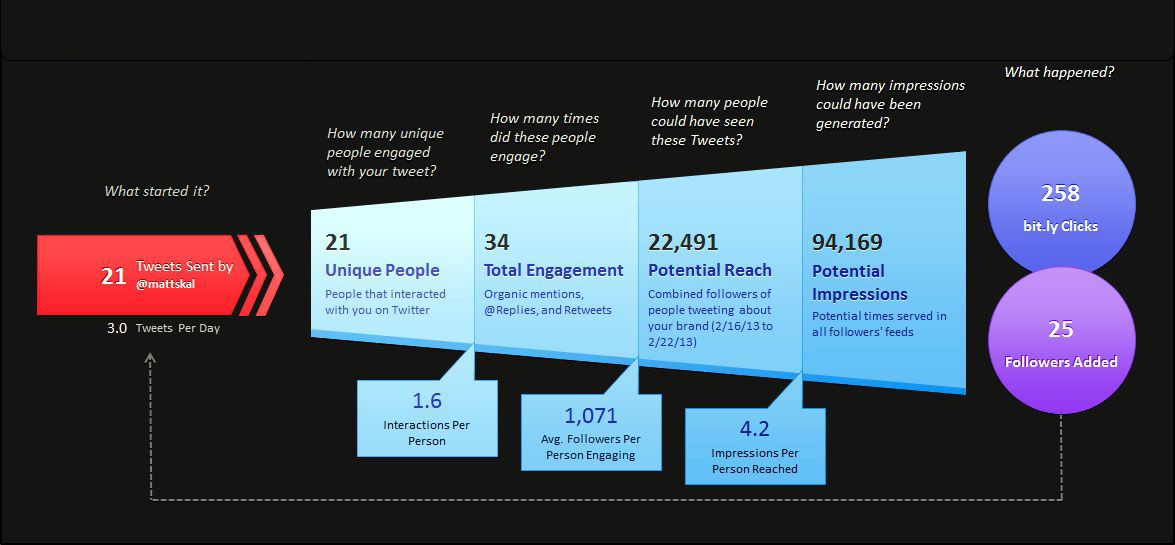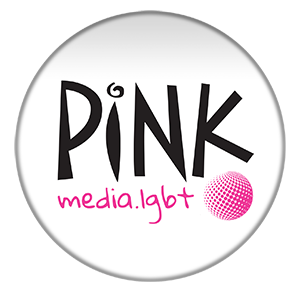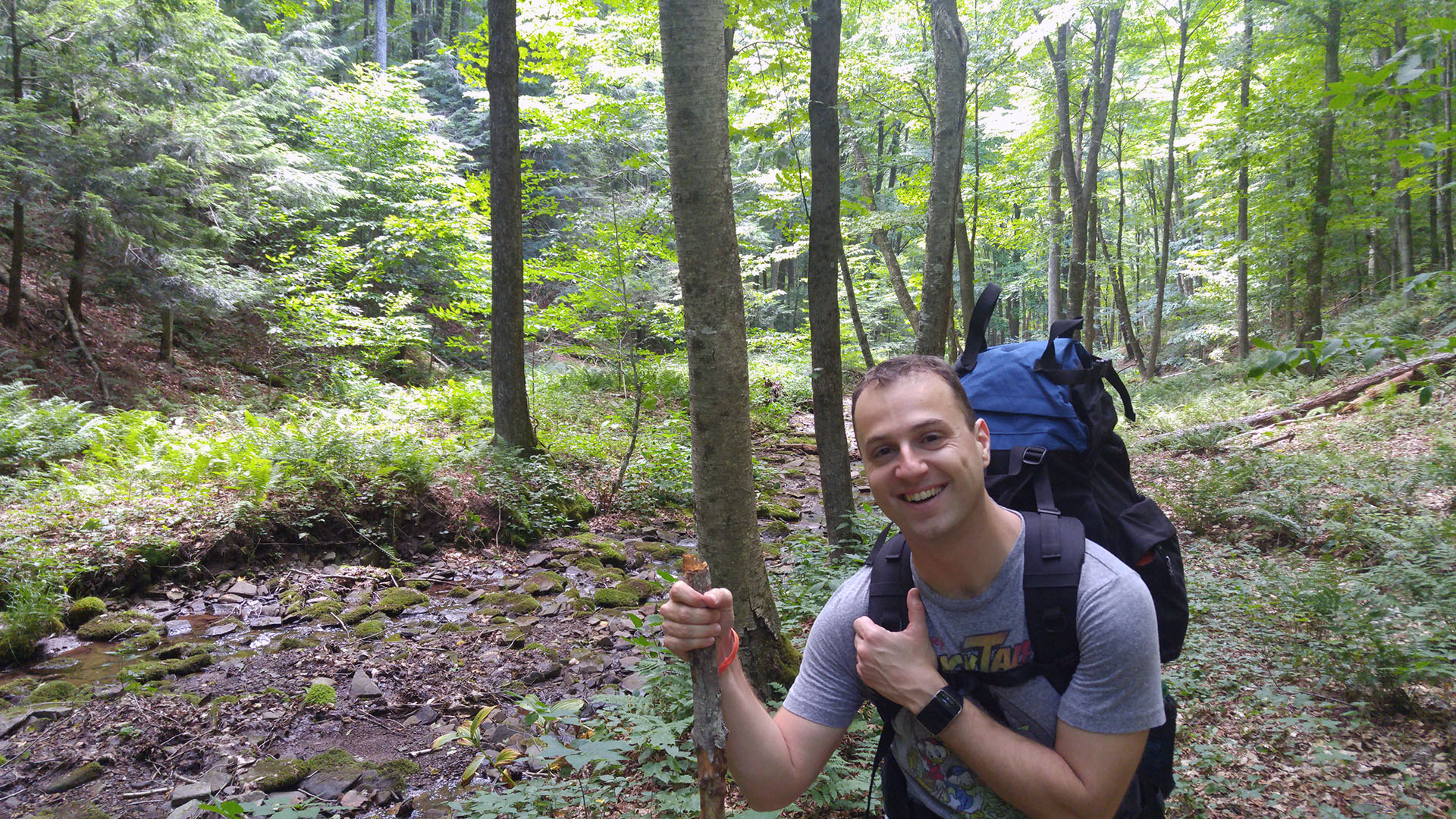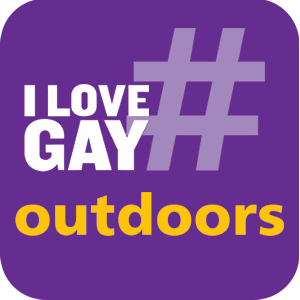HOME | About Us | Our Marketing Programs | Advertising | #ILoveGay Today Videos | Contact Us
Twitter 101
There are millions of Twitter examples we could be showing here, but we'll try to focus on just these few below, to help illustrate both the HOW and WHY of a strategy we (#ILoveGay) and millions of others follow when using Twitter for a competitive advantage.


When Tweeting, you have 280 characters + 4 photos, or a video, and a link to a landing page that should have a direct correlation to what the Tweet is about. Look at that link and landing page as your "Call to Action."


Include the Twitter profile of the subject and other related profiles from your Tweet. This will help your Tweet tap into the wider Twitter network, and in this instance, the "friends of friends" aspect of social media that is so critical to a Tweet going "mini-viral!" Also include relevant hashtags. If it's an event, use the event hashtag. This will allow you to tap into those other conversations, as well as allow your Tweet to be discovered by those following that hashtag. Search engines such as Google sometimes highlight trending hashtag Tweets in their search results as well.


Include up to 4 photos that will help sell the idea in your Tweet and encourage people to pause and take a closer look at what you have to say. If you use video instead, try to keep it to 45 seconds or less. You're using these 280 characters to help "sell an idea" and encourage the online user to pause and take a closer look at what you have to say, hopefully reading your Tweet, checking out the photos more closely, watching some of the video, and then clicking over to your "call to action!"
Add some personal style. After a while, you start to see various Twitter profiles posting their Tweets with a unique style, such as using a headline, then adding the profiles and hashtags in the middle, and following that up with additional text to help the user understand what the Tweet is about. Breaking up the Tweet in this way makes it easier for an online user to absorb what you have to say in smaller sound bites, rather than having to read a small paragraph.


Stay engaged. Once you've gotten in the habit of Tweeting on a regular basis, talking about your company, the people in your company, a featured client, a new product or service, etc., it's then a good idea to start following and paying attention to others in your industry as well. Like other people's Tweets that are related to your industry, and leave a comment or two when relevant and you actually have something meaningful to say (rather than just commenting "hello, come visit my website"). ReTweet as well, when it's something that's supportive of and/or related to your industry. These steps keep you engaged with your followers, and will help ensure they stay engaged with you as well. Based on Twitter's news feed algorithm, it will also ensure your Tweets show up in other people's news feeds more often, which is what you want. Also keep in mind that when your followers receive their "highlight" notification email from Twitter, as well as their Twitter notifications on their phone, these are additional opportunities for you and your business be featured.


Remember, to succeed on Twitter is to remind yourself that there's another person on the other end of that Tweet. Twitter is very human. If you're up there shouting and talking only about yourself, and not showing any interest in others, this will be reflected in your success, or lack thereof, on Twitter. Twitter is pretty linear in terms of the ratio of likes and ReTweets to impressions. On average, your goal should be 5% engagement rate (as measured at https://analytics.twitter.com... and 10% would be great!) Thus, 50 click-throughs, likes and shares would equate to approximately 1,000 people having viewed your Tweet. Since this is the same for others, you can get a pretty good sense of how others in your industry, including competitors, are doing on Twitter based on this basic ratio. If they're engaged in any way, shape or form, they should have at least a few likes and ReTweets. And also remember, it's not just a numbers game... you can have 100 followers or 1,000 followers, but if you're following the strategy above and staying engaged, you can still achieve strong performance regardless of how popular your Twitter profile is.


There is currently no medium where with a mere 250 followers you can reach over 9,000 people and get 290 of them engaged
in your content for FREE. If you follow this strategy, Twitter is by far the most cost-effective medium out there.
Twitter is not Facebook or Instagram. Facebook is great, but our team looks at it as training wheels for how you can succeed on Twitter. You can only follow 5,000 on your personal profile, and only 5,000 can be following and paying attention to you. Now that's a big number when it comes to family, friends and a few professional contacts. But overall, the messages that succeed on Facebook are those that are more personal in nature. Now, if you're business and personal personas are fully merged on your Facebook personal profile, then you'll probably be quite successful on Facebook with those 5,000 followers. For the rest of us, we're forced to post on our Facebook business page, which based on Facebook's news feed algorithm, could have 100,000 followers yet very little engagement and thus views of our content. Unless you pay Facebook, using their hyper-targeted ad capabilities. If you do, providing that you've created the right audience (we can assist, you if need be), then your Facebook post can far outpace and outperform most advertising available today, including Google text search ads.


Instagram is not that far behind Facebook. You can only follow 7,500 people, which is fine for most of us, but to truly succeed, you need far more than 7,500 following you (you can have millions follow you, but you can still only follow 7,500, which makes it more of a "celebrity/look at me" social media platform). Companies and people employ all sorts of tricks in order to work around these limitations. At the end of the day, it's all about those Instagram likes, which there are plenty of. You'll always get more likes on Instagram than you do on Twitter, but are those likes translating into a direct link to your "call to action" page, or are they just likes, with a few new followers that day? Now don't get me wrong... Instagram can be a successful part of your social media marketing mix. The problem is that everyone seems to love Instagram first, but to convert that Instagram love into business remains the tricky part.
Read more on this topic with the following articles:
-
The LGBT TwitterSphere - This Is Where They Eyeballs Are Going Today
-
HOW Do You Do It? The LGBT "TwitterSphere" and the Unique Language of Twitter
-
#ILoveGay and the LGBT Twitter 360° Environment & Network Effect
-
Tips & Tricks on Maximizing Your LGBT Twitter Posts with #ILoveGay
|
Partner With Us!
|
In-Depth Marketing Info
|
#ILoveGay Twitter 360°
|
LGBTQ Content Marketing
|
Opportunities
|
Welcome
|
Additional Market Opportunities
|
What Is the #ILoveGay 360° Multimedia Network
What is our goal with #ILoveGay to Consumers?
To be the Best Community Hub
for all LGBTQ+ social conversations
related to a specific region or theme.
What is our goal with #ILoveGay to Businesses?
To be the Best Brand to work with
when targeting the LGBTQ+ community online,
blending influencer marketing, content marketing and social media
as well as traditional online strategies.
How Do We Do It?
We find the right mix of curating, sharing, and liking content,
as well as following social media users, while staying "on brand".
We promote content, including advertisers', at the social media post level,
you know, just like an LGBTQ+ influencer would ;-)
More About Our Reach
Social Media Reach from our #ILoveGay social media networks
(including @ILoveLGBTTravel, @ILoveGayLGBT, @ILoveLGBTBiz,
@PinkMediaWorld and @ILoveGayViews) is now
over 1,500,000+ followers on Twitter/X, Threads, Facebook, TikTok and Instagram combined.

Prices start at $500
Interested in pursuing this
#ILoveGay 360° Multimedia marketing program and strategy
for your business? Call us at (323) 963-3653 or...
contact us here to get started.
Why Hire Us?
With #ILoveGay, we have developed a trusted brand
in the LGBTQ+ online community, whereby we have
stayed engaged with our followers and built up
their trust and loyalty over the past few years.
They know that when we like, share and post,
the content we're engaged with will be high quality.
We can help bring your brand into this loyal #ILoveGay Network.
Each #ILoveGay profile stays true to its niche,
whether that's @ILoveGayTheatre or @ILoveGayNYC...
following and engaging only with individuals and businesses
in the LGBTQ+ theatre world or the LGBTQ+ NYC community, respectively.
We can target your message directly to the niche audiences that are
right for you, and we can enhance these posts with paid advertising
to reach deeper into this niche audience,
as well as duplicate this level of hyper-targeting on Facebook and Instagram
in order to reach your target demographic on all top social media platforms as well.
We have spent years cultivating relationships with
LGBTQ+ influencers on Twitter and Instagram, and as our client,
we can leverage these relationships on your behalf as well.
You're letting someone else talk about you to the LGBTQ+ community online.
Yes, you can promote yourself directly, but sometimes the message has
more credibility when you let someone else talk about your business as well.
You are leveraging our company's 25+ years in the LGBTQ+ marketplace.

Advertising Opportunities
Would you like your business listed here? Call us at (323) 963-3653 or contact us here to get started.
Interested in having more of your organization's content included here?
Would you like to learn more about our LGBTQ+ marketing programs, as well as other advertising marketing programs we offer?
View Our Opportunities Here to get started.
Opportunties Promotion Page
Brought To You By...
HOME
|
About Us
|
Our Marketing Programs
|
Advertising
|
#ILoveGay Today Videos
|
Contact Us




